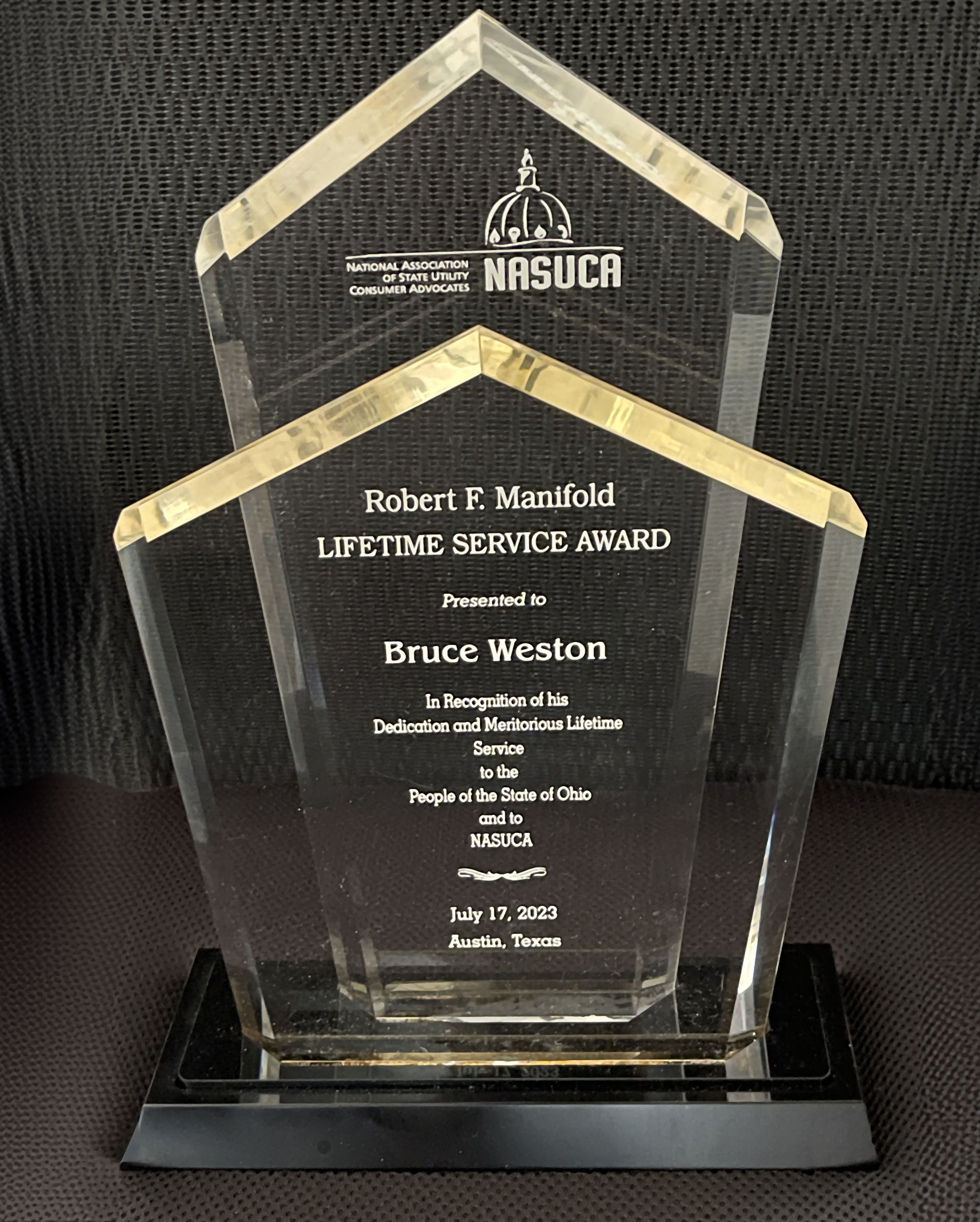Before
The Ohio House of Representatives
Energy and Natural Resources Committee
Testimony on Substitute House Bill 6
Presented by Michael Haugh
On Behalf of the
Office of the Ohio Consumers’ Counsel
May 23, 2019
Hello Chair Vitale, Vice-Chair Kick, Ranking Member Denson, and members of the Committee. Thank you for this opportunity to testify.
My name is Michael Haugh. I am a consultant for the Office of the Ohio Consumers’ Counsel, the state agency that represents over four million residential utility consumers. I have previously testified three times for consumer protection in opposition to House Bill 6.
I said in my previous testimony that subsidies are “contagious.” Unfortunately for utility consumers, the ‘subsidy virus’ is spreading. Yesterday’s bill version adds hundreds of millions of dollars in coal plant subsidies to the existing legislation for a bailout of FirstEnergy’s nuclear plants, all at public expense. This legislation is getting ever farther removed from the intended power plant competition of the 1999 Ohio energy law that restructured the industry. And this legislation is getting farther removed from the claimed intent of this bill – clear air, to the point where plants producing dirty air will now be subsidized.
The May 22nd version of House Bill 6 is great for some. It’s great for: Big nuclear; Big coal; Big electric utilities; Big industrial customers; Big FirstEnergy and the Big Wall Street creditors of bankrupt FirstEnergy Solutions. The Bill is bad for regular folks (“Bob and Betty Buckeye”) and smaller business customers who will pay to make the bill great for big business. The most significant change in yesterday’s version of House Bill 6 is the creation of a law to subsidize two 1950’s dirty-air coal plants owned by AEP, DP&L, Duke and formerly FirstEnergy Solutions (among other companies). (Lines 1312-1315) These are the so-called “OVEC” (Ohio Valley Electric Corporation) plants. An obvious concern is that consumers will be made, as a matter of law, to subsidize hundreds of millions of dollars for the utilities’ coal plants and even to pay the share of costs formerly owed by bankrupt FirstEnergy Solutions. (Lines 1208-1212) Codifying the subsidy will deny the PUCO the future discretion to end the subsidy of these coal plants that is at public expense (which the PUCO has been allowing). But there is another significant concern that is less obvious. The law is crafted to reduce what big industrial customers currently pay to subsidize these old coal plants at the expense of Ohio families and smaller businesses who will pay more. This just adds to the pre-existing unfairness of the legislation for small customers who already would pay too much for the nuclear subsidy compared to big business that would pay too little.
In this regard, the Bill instructs the PUCO to determine the proper rate design for charging customers, but no customer shall pay more than $2,500 per month. (Lines 1322-1335) Currently most large industrial energy customers pay well above $2,500 per month for these coal plants, based on utility tariffs for a customer using over 6 million kWh per month. The legislation’s rate cap for big customers will result in the deferral of millions of dollars that ultimately can be expected to be taken out of the pockets of residential customers. This is patently unfair to hard- working Ohioans.
The claimed reason for subsidizing these coal plants that are relics of the 1950’s is “national security.” To explain why the connection to national security ended a long time ago for these old coal plants, I have attached testimony from the Industrial Energy Users in this chamber on June 6, 2017. There is no national security interest that justifies making Ohioans pay AEP, DP&L and Duke to subsidize these inefficient and dirty-air power plants. Half a century after these coal plants were built, the utilities should look inward for a solution to their uneconomic power plants. Utilities (and the General Assembly) should not look to Ohioans for a continued bailout of these uneconomic power plants. The solution should not be for Ohio families and smaller businesses to bail out coal plants (in addition to bailing out nuclear plants). Since 1999, electric utilities have collected over $15 billion in subsidies from consumers. Subsidies of any and all generation types should end, and consumers should get the benefit of lower prices and higher innovation from the competitive power plant market. For the protection of Ohio utility customers, I urge you to vote “no” on House Bill 6. Thank you.

